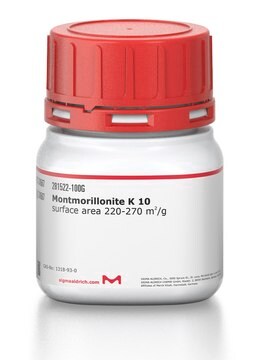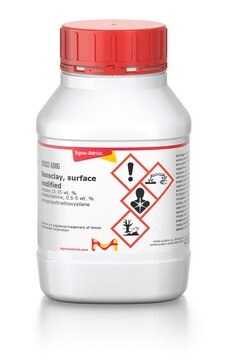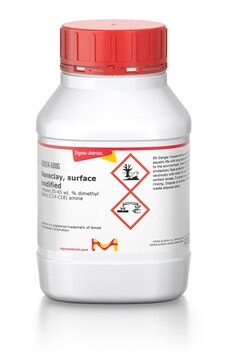682659
Nanoclay, hydrophilic bentonite
Synonym(s):
Nanomer® PGV, Nanomer® clay, Montmorillinite clay, bentonite
About This Item
Recommended Products
form
powder
particle size
≤25 μm
Application
- Rheology control
- Increase barrier
- Enhance chemical resistance
Legal Information
Product of Nanocor®, Inc.
Storage Class Code
11 - Combustible Solids
WGK
WGK 3
Flash Point(F)
Not applicable
Flash Point(C)
Not applicable
Personal Protective Equipment
Certificates of Analysis (COA)
Search for Certificates of Analysis (COA) by entering the products Lot/Batch Number. Lot and Batch Numbers can be found on a product’s label following the words ‘Lot’ or ‘Batch’.
Already Own This Product?
Find documentation for the products that you have recently purchased in the Document Library.
Customers Also Viewed
Articles
Nanoclays are nanoparticles of layered mineral silicates. Montmorillonite, bentonite, and halloysite nanoclays and organoclays are used in polymer-clay nanocomposites, as rheology modifiers, and drug delivery carriers.
Our team of scientists has experience in all areas of research including Life Science, Material Science, Chemical Synthesis, Chromatography, Analytical and many others.
Contact Technical Service

